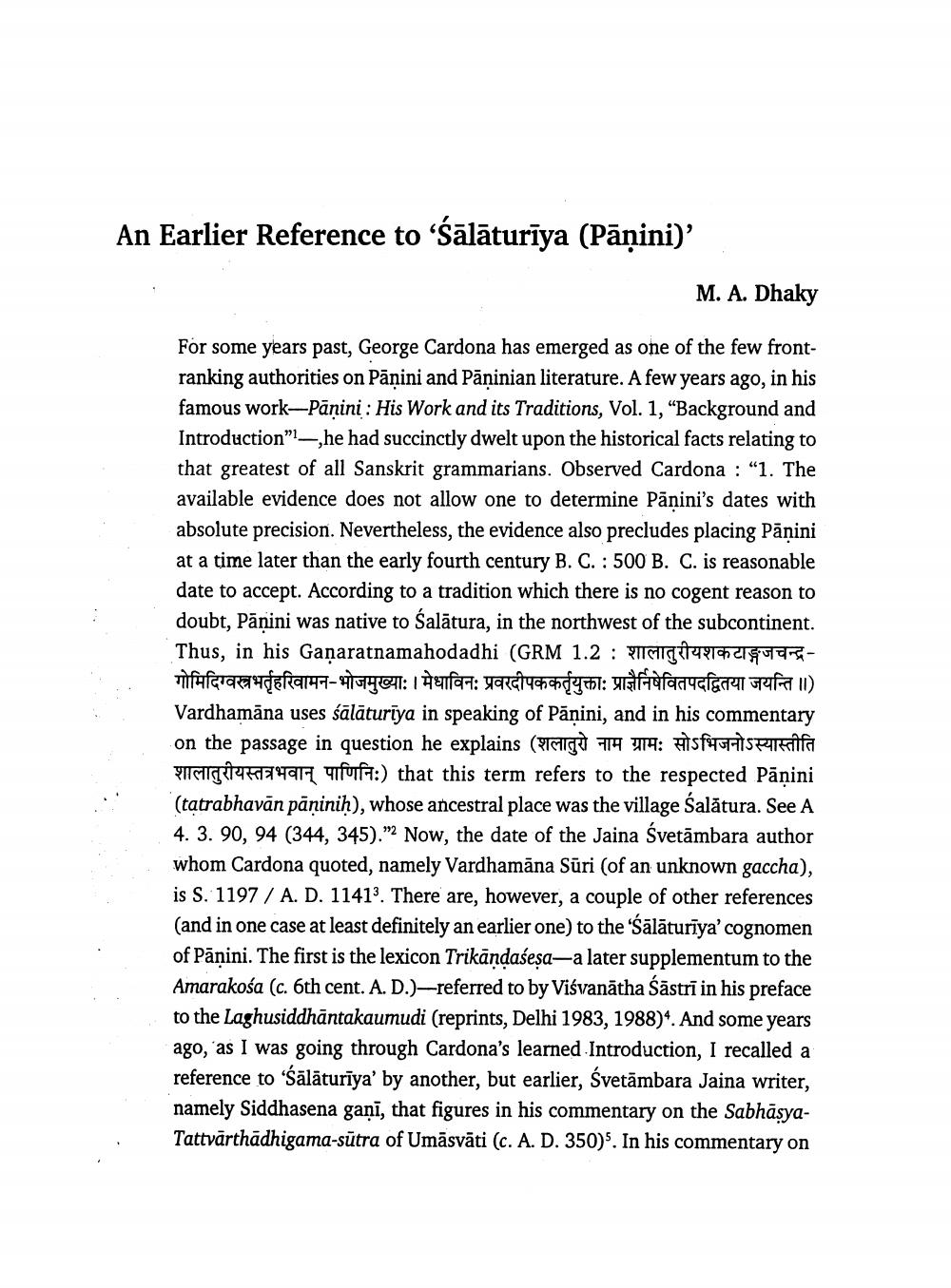________________
An Earlier Reference to 'Sālāturīya (Pāṇini)'
M. A. Dhaky
For some years past, George Cardona has emerged as one of the few frontranking authorities on Pāṇini and Pāṇinian literature. A few years ago, in his famous work-Pāṇini : His Work and its Traditions, Vol. 1, “Background and Introduction”—, he had succinctly dwelt upon the historical facts relating to that greatest of all Sanskrit grammarians. Observed Cardona : “1. The available evidence does not allow one to determine Panini's dates with absolute precision. Nevertheless, the evidence also precludes placing Pānini at a time later than the early fourth century B. C. : 500 B. C. is reasonable date to accept. According to a tradition which there is no cogent reason to doubt, Pānini was native to Salātura, in the northwest of the subcontinent. Thus, in his Gaņaratnamahodadhi (GRM 1.2 : picigsterrichele Horsगोमिदिग्वस्त्रभर्तृहरिवामन-भोजमुख्याः । मेधाविनः प्रवरदीपककर्तृयुक्ताः प्राज्ञैनिषेवितपदद्वितया जयन्ति ।।) Vardhamāna uses śālāturīya in speaking of Pāņini, and in his commentary on the passage in question he explains (RTUIGŪ 774 474: HSPASPfa शालातुरीयस्तत्रभवान् पाणिनिः) that this term refers to the respected Panini (tatrabhavān pāņinih), whose ancestral place was the village Salătura. See A 4.3. 90, 94 (344, 345).”? Now, the date of the Jaina śvetāmbara author whom Cardona quoted, namely Vardhamāna Sūri (of an unknown gaccha), is S. 1197 / A. D. 11413. There are, however, a couple of other references (and in one case at least definitely an earlier one) to the "Sālāturīya' cognomen of Panini. The first is the lexicon Trikāndasesama later supplementum to the Amarakośa (c. 6th cent. A. D.)—referred to by Viśvanātha Šāstrī in his preface to the Laghusiddhāntakaumudi (reprints, Delhi 1983, 1988)4. And some years ago, as I was going through Cardona's learned Introduction, I recalled a reference to 'Sālāturīya' by another, but earlier, Svetāmbara Jaina writer, namely Siddhasena ganī, that figures in his commentary on the SabhāsyaTattvārthādhigama-sütra of Umāsvāti (c. A. D. 350). In his commentary on




